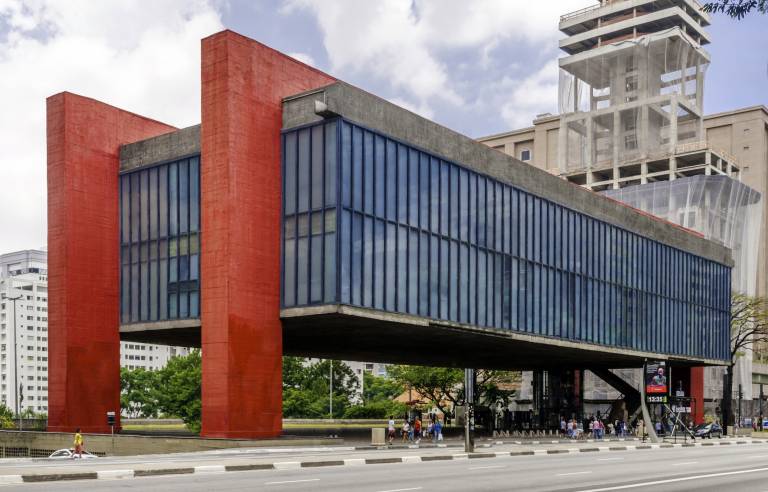IAS Talking Points Seminar: From the "Art of the Insane" to "Modern Art"
28 March 2022, 6:00 pm–8:00 pm

From the "Art of the Insane" to "Modern Art": Psy-knowledge and Avant-Garde in Brazil (1929-1948). With Professor Cristiana Facchinetti (IAS). Respondent: Professor Stephen Frosh (Birkbeck, University of London) and Professor Sonu Shamdasani (SELCS, UCL)
This event is free.
Event Information
Open to
- All | UCL staff | UCL students | UCL alumni
Availability
- Yes
Cost
- Free
Organiser
-
Institute of Advanced Studies
Location
-
IAS ForumGround floor, South Wing, Wilkins BuildingLondonWC1E 6BTUnited Kingdom
The reception and an initial circulation of psychoanalytic ideas and practices in Brazil were close to Sigmund Freud's works, even earlier than many large European cities (1899). Still, few were interested in investigating its local presence during the 20th century. Consequently, much of this history was limited to commemorative monographs of pioneers, great psychoanalysts, or memoirs, having as its milestone the foundation of psychoanalytic societies in the 1950s. Comparing psychoanalysis in Brazil with an idealized image of psychoanalysis in Vienna, London, or Paris, other authors saw Brazil only as a "scientific Macondo" (Pyeson, 1988). But from the 1990s onwards, the interpretation of this history took on more historiographical characteristics, considering local psychoanalysis as a producer and product of this culture and society, viscerally linked to local demands, groups, influences, individuals, worldviews, and utopias.
This presentation contributes to this history, proposing that a history of psychoanalysis in Brazil should include the different actors who used the notion of the Freudian Unconscious concept – and others arising from it – in their professional interests, dissemination, and daily appropriations. In this sense, my lecture aims to trace how the art produced in Brazilian psychiatric hospitals gained a new identity from the interwar period, becoming recognized as modern art amid a substantial circulation of psychoanalysis. For this purpose, I will first examine early 20th century Brazilian psychiatric and aesthetic texts on psychoanalysis and art. Then, I will use the discourse of these actors as a framework to indicate how the cross-fertilization between psychiatry, psychoanalysis, and avant-garde art movements led to the fusion of madness and sanity in the arts. To develop the argument, I focus on Dr. Osório Thaumaturgo Cesar, a psychiatrist at the Hospital do Juquery in São Paulo, Brazil, and his studies of artistic expression, which provided a model of avant-garde art as "having several points of contact with that of the asylums" (César, 1929). I will also examine Brazilian modernist painter Flávio de Carvalho's comments on "mad art" and modern painting (Carvalho, 1933). Finally, I take stock of the tensions and debates between the psychoanalytic-modernist group and other intellectuals who consider these artistic expressions degenerate art. I will follow these battles in the newspapers until the post-war period. There was an important exhibition of Juquery artists' works at the newly created São Paulo's Modern Art Museum (MASP) in 1948. As I intend to demonstrate, tensions and contradictions in the 1930s and of 1940 were part of the disputes and negotiations that allowed greater acceptance of these works as modern art in the post-war period, when psychoanalysis began the institutionalization of the IPA in the country.
Speaker
Professor Cristiana Facchinetti
(Visiting Research Fellow at the IAS)
Respondent
Professor Stephen Frosh
(Birkbeck, University of London)
Professor Sonu Shamdasani
(SELCS, UCL)
Image: São Paulo Museum of Art view from NW /SO Av. Paulista, 1578, Bela Vista, São Paulo - SP, 01310-200
All welcome. Please follow this FAQ link for more information. All our events are free but you can support the IAS here.
 Close
Close

